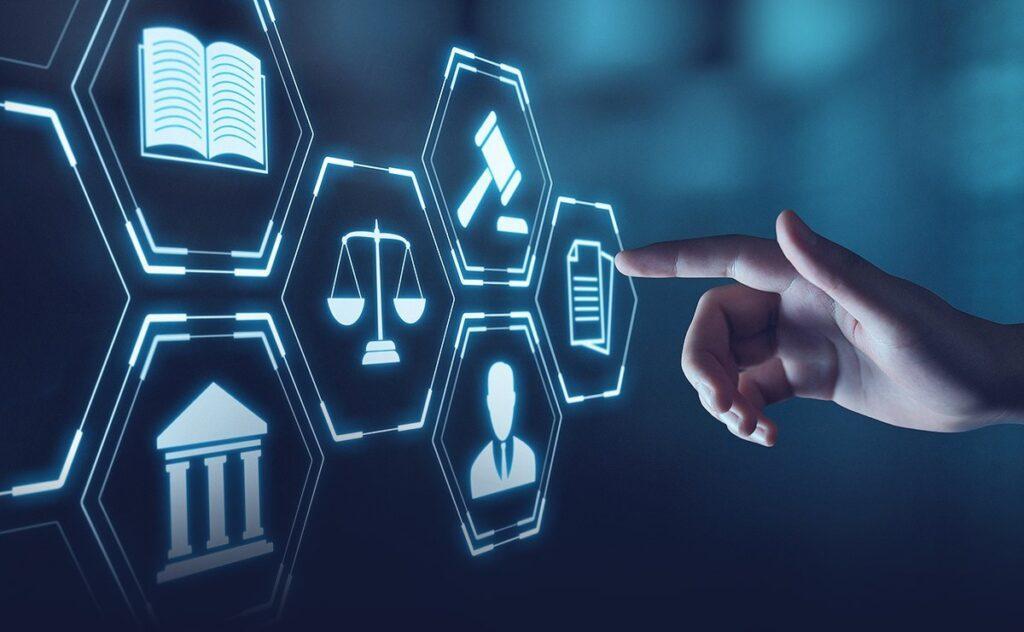
How Technology is Transforming the Practice of Law
In a rapidly evolving digital landscape, technology is significantly impacting various industries, and the legal sector is no exception. Over the past few decades, the intersection of law and technology has led to the emergence of “LegalTech,” which harnesses the power of artificial intelligence (AI) and other advanced technologies to streamline and enhance legal processes. This blog post will explore the historical evolution of legal tech, the impact of AI on legal research and document review, the automation of routine legal tasks, the role of technology in improving access to justice, and the ethical considerations and challenges associated with adopting legal tech.
Historical Overview of Legal Tech Evolution
The integration of technology into the legal field is not a recent phenomenon. The roots of legal tech can be traced back to the 1960s, when computer-assisted legal research (CALR) systems such as LexisNexis began to emerge. These systems revolutionized legal research by providing electronic access to vast databases of legal information. However, it wasn’t until the advent of the internet that legal tech began to truly take off.
With the rise of the internet in the 1990s, law firms started to adopt email communication, electronic filing systems, and online legal research tools. Over time, these innovations paved the way for more sophisticated legal tech solutions, including practice management software, e-discovery platforms, and virtual law firms. Today, legal tech encompasses a wide range of tools and technologies that are reshaping the legal profession.
Impact of AI on Legal Research and Document Review
One of the most significant advancements in legal tech is the application of AI in legal research and document review. AI-powered legal research platforms, such as ROSS Intelligence and CaseText, leverage natural language processing (NLP) algorithms to analyze legal texts and provide precise answers to complex legal queries. These platforms can quickly sift through vast amounts of legal information, saving lawyers valuable time and improving the accuracy of their research.
Similarly, AI is transforming the document review process. Traditional document review is a labor-intensive and time-consuming task, often involving the manual review of thousands of documents. AI-powered tools, like Kira Systems and Relativity, use machine learning algorithms to identify relevant documents, flag potential issues, and categorize information. This not only speeds up the review process but also reduces the risk of human error.
Automation of Routine Legal Tasks
Beyond legal research and document review, technology is automating various routine legal tasks. For instance, contract management platforms, such as Ironclad and ContractPodAi, use AI to automate contract creation, negotiation, and analysis. These platforms can generate contracts based on predefined templates, track contract lifecycle stages, and even suggest revisions based on historical data.
Additionally, legal chatbots and virtual assistants, like DoNotPay and Ailira, are automating client interactions and providing legal advice. These AI-driven tools can handle common legal queries, assist with document preparation, and guide clients through legal processes. By automating routine tasks, legal professionals can focus on more strategic and complex aspects of their work.
The Role of Tech in Improving Access to Justice
One of the most promising aspects of legal tech is its potential to improve access to justice. Historically, legal services have been expensive and inaccessible to many individuals and small businesses. Legal tech startups, such as LegalZoom and Rocket Lawyer, are democratizing access to legal services by offering affordable and user-friendly online platforms for legal document creation, legal advice, and self-help resources.
Furthermore, AI-powered tools are being used to bridge the justice gap. For example, online dispute resolution (ODR) platforms, like Modria and Smartsettle, use AI to facilitate the resolution of disputes outside of traditional courtrooms. These platforms provide a cost-effective and efficient alternative to litigation, making legal services more accessible to underserved populations.
Ethical Considerations and Challenges in Adopting Legal Tech
While the benefits of legal tech are undeniable, there are also ethical considerations and challenges that must be addressed. One of the primary concerns is data privacy and security. Legal professionals handle sensitive and confidential information, and the adoption of legal tech solutions raises questions about data protection and cybersecurity.
Additionally, there are concerns about the potential bias in AI algorithms. AI systems are trained on historical data, which may contain biases that can be perpetuated in AI-generated outcomes. It is crucial for legal tech developers and users to ensure transparency, accountability, and fairness in AI applications.
Conclusion
Legal tech is revolutionizing the practice of law, offering unprecedented opportunities to enhance efficiency, accuracy, and accessibility in the legal profession. From AI-powered legal research and document review to the automation of routine tasks and improved access to justice, technology is reshaping the way legal professionals work. However, it is essential to address the ethical considerations and challenges associated with legal tech adoption to ensure its responsible and equitable use.
Ready to explore how legal tech can transform your practice? Sign up for Jasper’s free trial today and experience the power of AI in law.
What is LegalTech?
LegalTech refers to the use of technology, particularly AI, to streamline and enhance legal processes and services.
How does AI impact legal research?
AI-powered platforms use natural language processing to analyze legal texts and provide precise answers to complex legal queries, saving time and improving accuracy.
Can technology really improve access to justice?
Yes, LegalTech startups offer affordable and user-friendly platforms that democratize access to legal services, making them more accessible to individuals and small businesses.
What are some ethical considerations in using legal tech?
Key concerns include data privacy, security, and potential bias in AI algorithms. Transparency and accountability are crucial.
How can I start integrating legal tech into my practice?
Begin by exploring AI-powered tools for legal research, document review, and routine task automation. Sign up for Jasper’s free trial to experience it firsthand.









